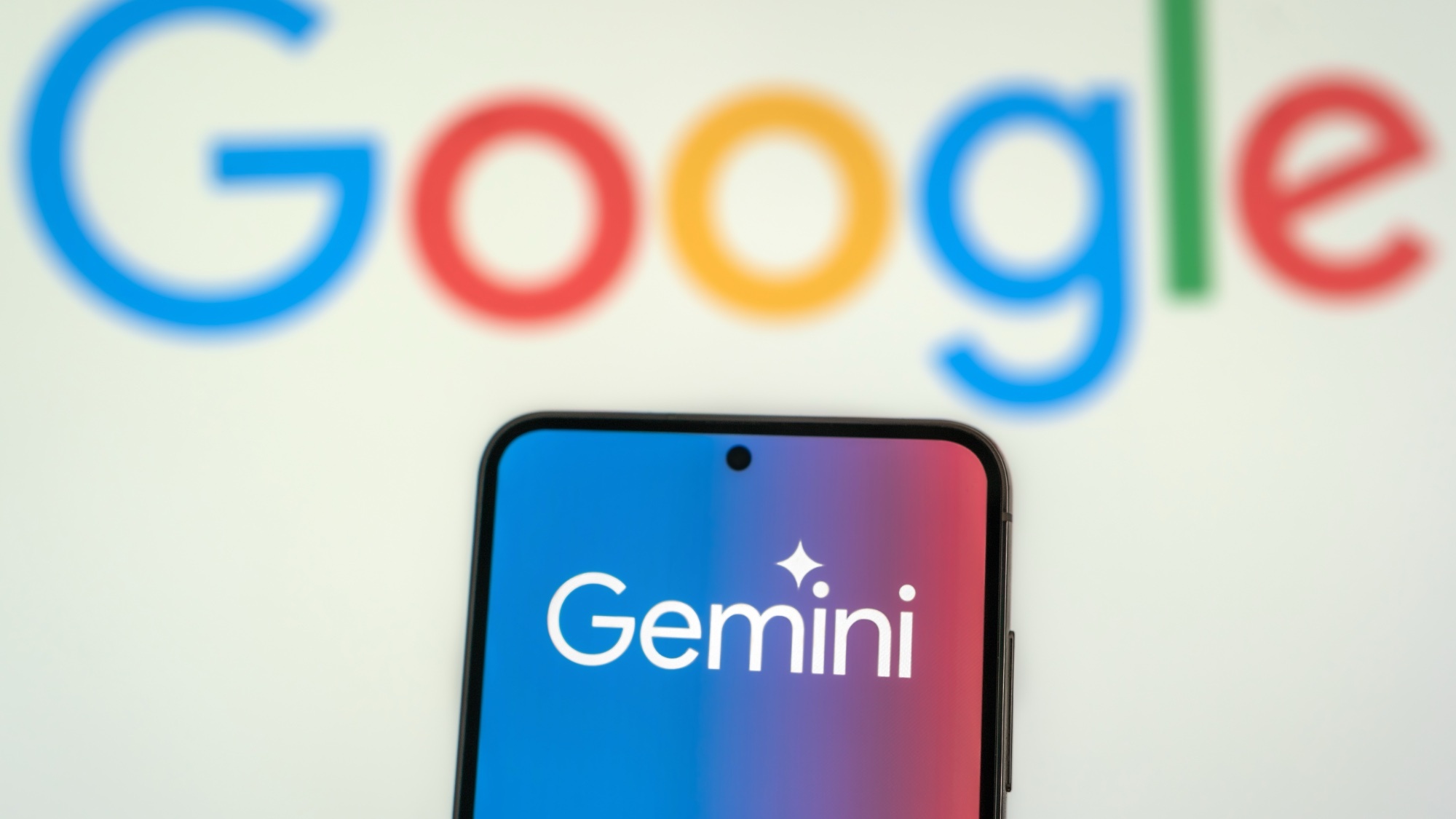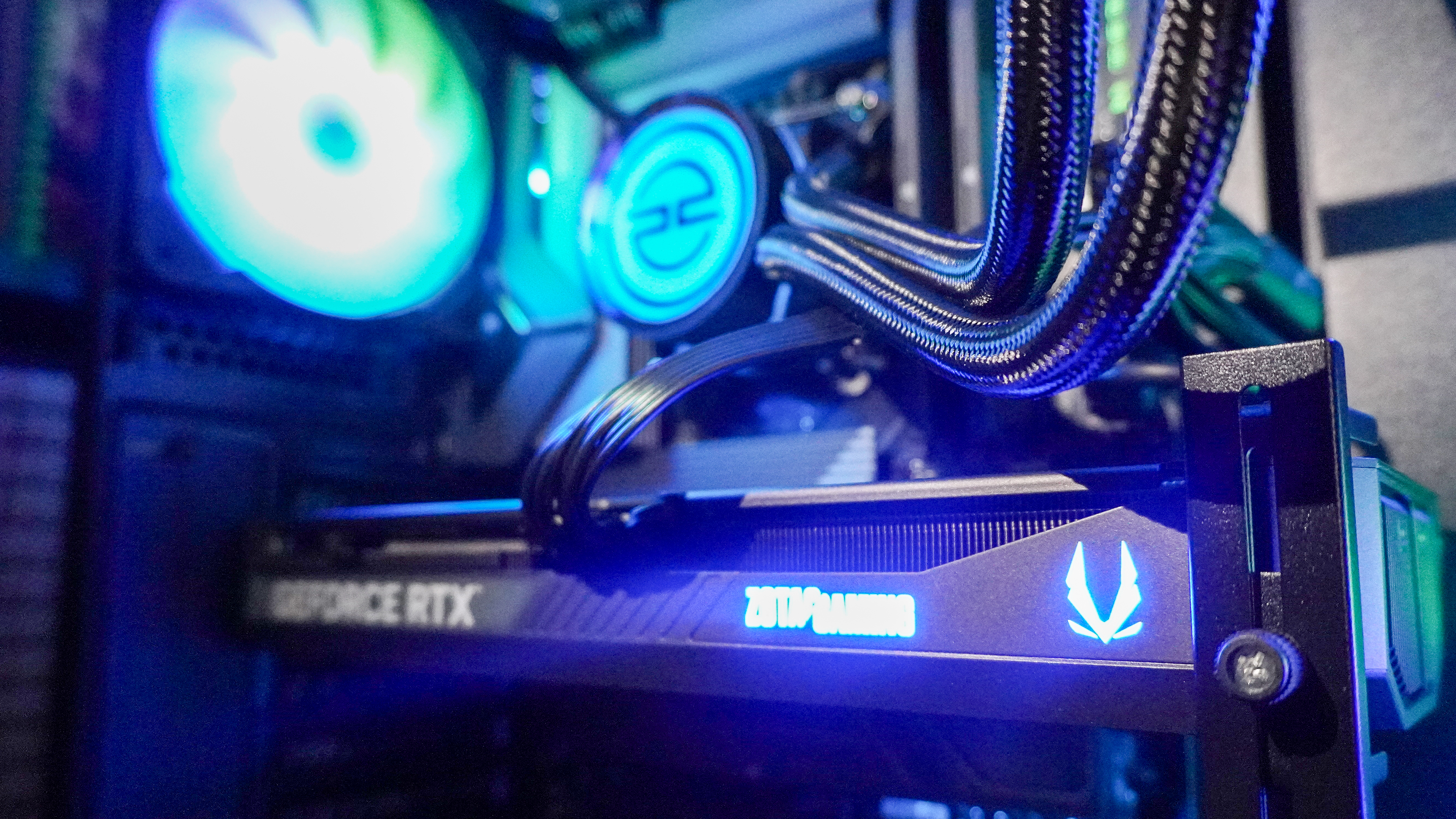Google Search is getting 6 huge new Gemini AI upgrades — what you need to know
Search just got a whole lot smarter
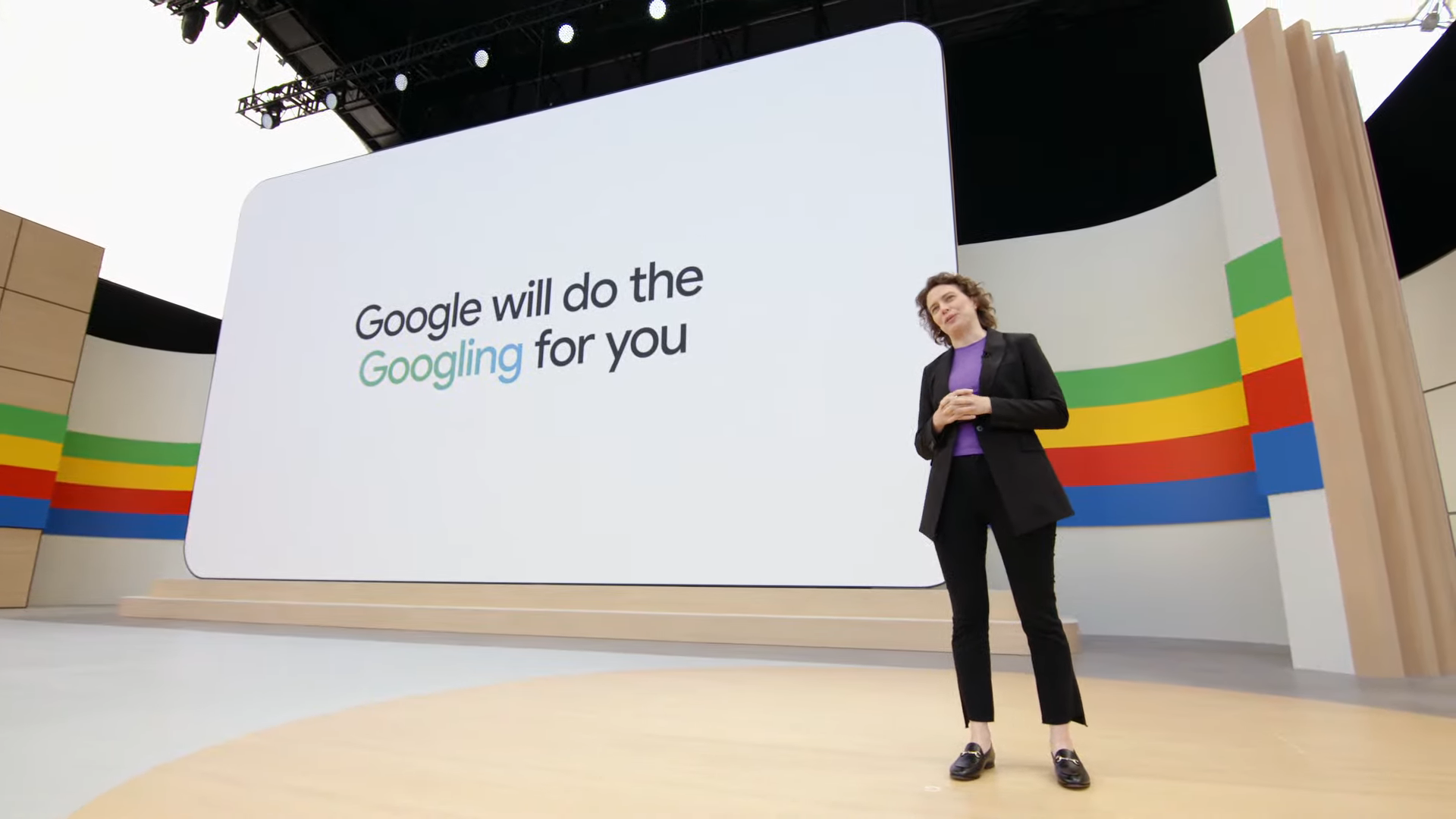
Google Search has received a massive generative AI update at Google I/O 2024 — powered by Gemini to transform the way you use the search engine by answering questions you have by pulling information from the web.
Not only that, but you have new ways to make the AI overviews work better for you, the ability to use AI in search to plan meals and trips, and even use video to answer questions about the world around you. Let’s break down these six big features — all of which you can sign up to get now (provided you live in the U.S.), or wait to get publicly by the end of the year.
1. Speedy answers with AI Overview

You may have seen this being tested by Search Labs members, and now it’s going to be rolled out to everyone in the U.S. today, with more countries set to get it soon.
Through this, the model is able to generate an answer to your question using a variety of different websites for sources to create a quick overview of the topic — complete with sourced links to find out more.
Google claims that with AI Overviews, people are using Google more to search. It will be interesting to see how this impacts whether a user decides to visit those sourced websites.
2. An adjustable AI Overview
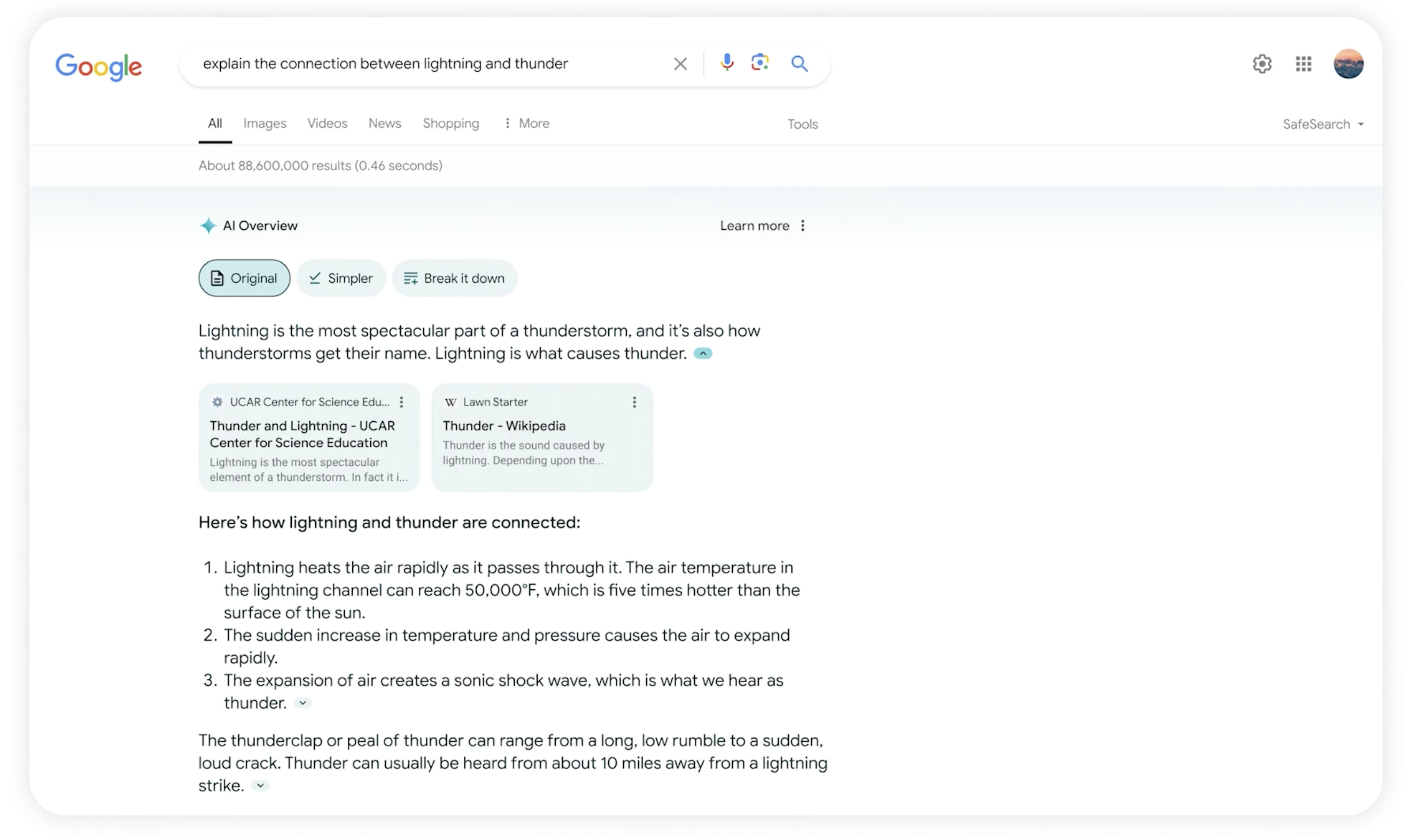
Speaking of these overviews, Google is going one step further by giving you the option to simplify the language or break it down into more detail.
This variability of how the Gemini model is able to present the information is sure to make these overviews more accessible — giving the geeks more information while giving the newcomers to a topic the chance to catch up with a simpler summary.
Sign up to get the BEST of Tom's Guide direct to your inbox.
Get instant access to breaking news, the hottest reviews, great deals and helpful tips.
3. Getting complex
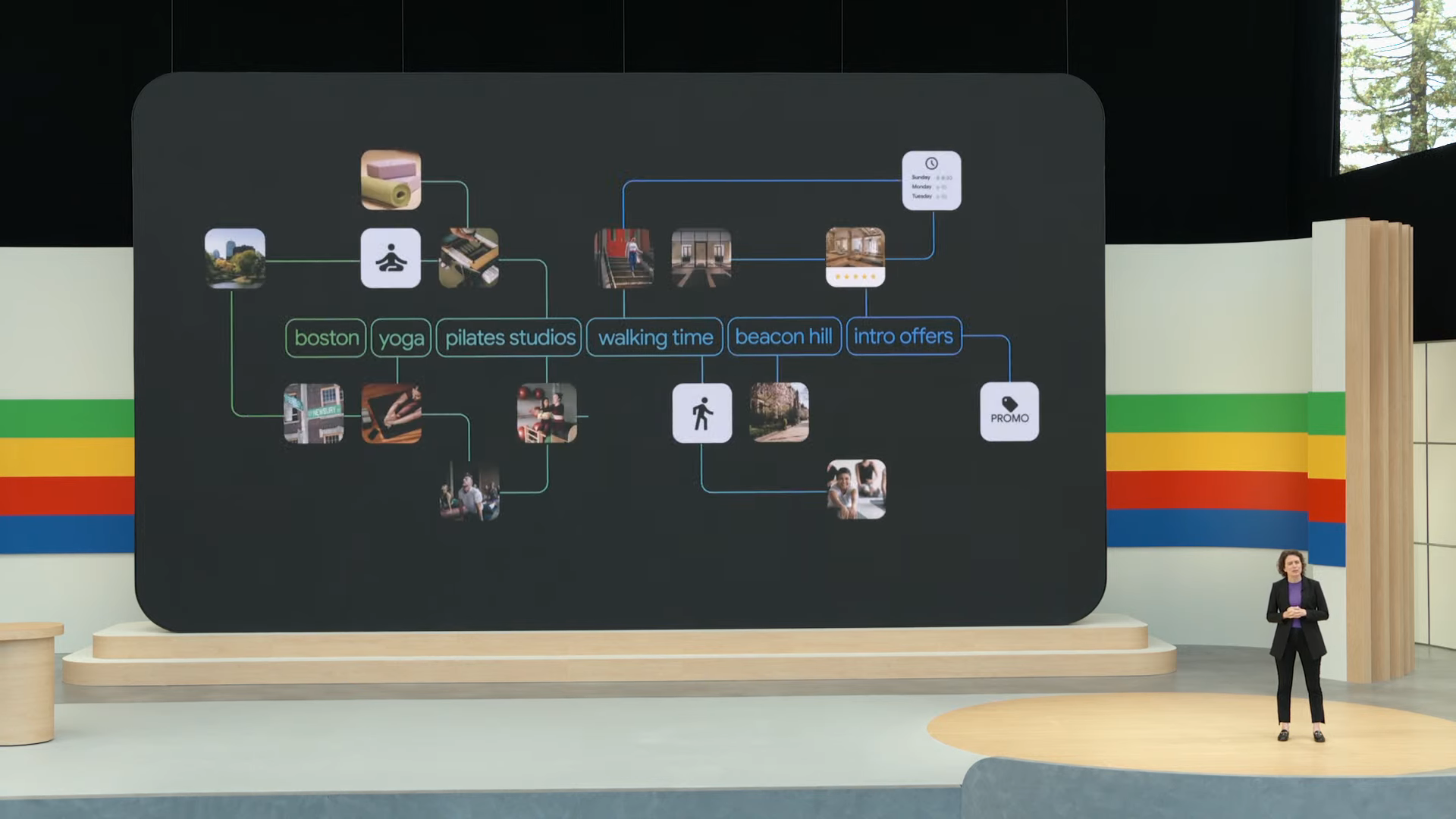
One big thing coming out of Google I/O is how Gemini is getting serious upgrades to its multi-step reasoning capabilities — being able to break down complex questions and answer every element.
This is coming to Google Search AI Overviews too, where you will be able to ask a multi-step question and get all the answers in one go, rather than having to do many individual searches.
4. Planning with search
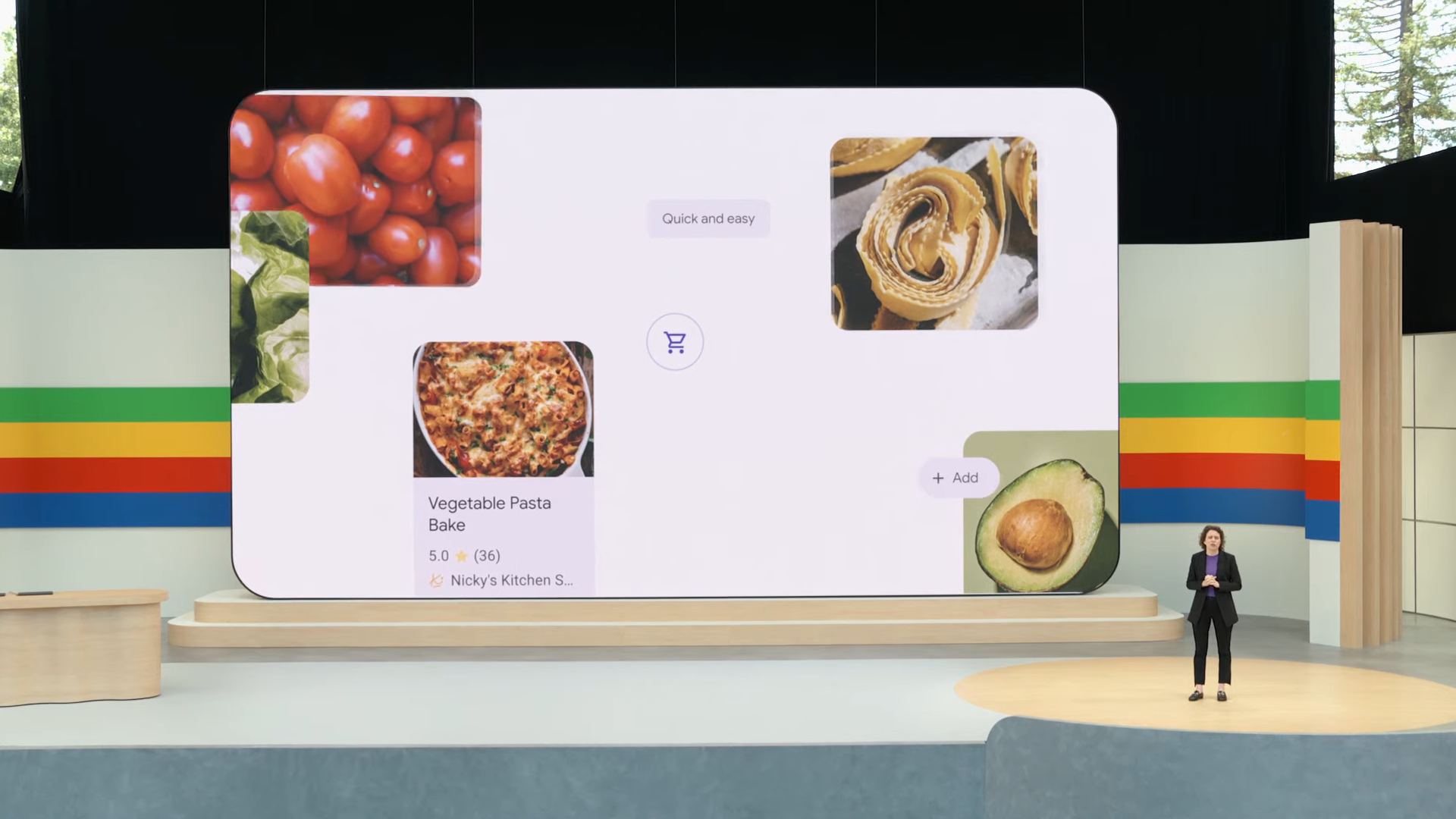
Anyone who has used AI recently will know that one of its superpowers is the ability to help make plans. With Search’s AI overviews, you will be able to use these same prompts, and Google will pull information from the web and make a plan with you.
Whether its a travel to London that doesn’t require much walking or a meal plan that is easy to prepare, Search can create and customize these based on follow up prompts. Once done, you can export this to Google Docs or Gmail.
5. Brainstorm with search

If you don’t have anything specific to search for, and you’re just looking for inspiration, the AI-organized results page is a great way to go. With this, AI almost takes over the job of ranking pages and splits up page groups into AI-generated categories.
For example, if you’re searching for a restaurant for an Anniversary dinner, Gemini will break multiple answers down into different angles with helpful clusters.
6. Google Search goes multi-modal
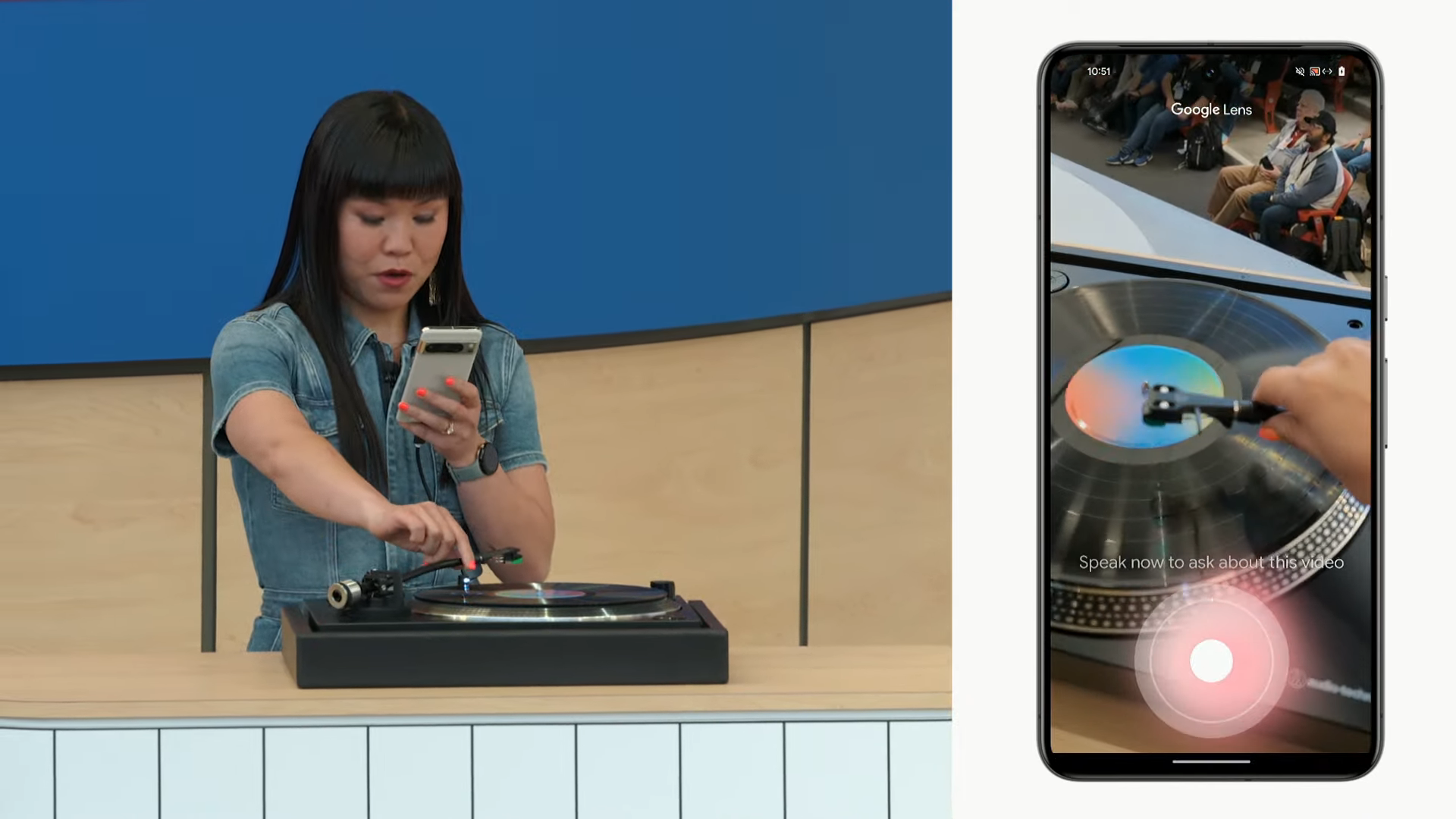
Think Google Lens but on speed. With Gemini’s updates in video understanding coming to Search, you’ll be able to get quick answers to questions on whatever you see.
Through asking how to fix a record player like Google demonstrated on stage, you could see how Gemini broke down the video into individual frames and understand what was going wrong — all by pulling together key details from the video and getting key information from ranking websites.
More from Tom's Guide
- Google unveils Project Astra AI assistant to fight GPT-4o — and it works with smart glasses
- Google Veo unveiled — new AI model makes high-def videos to take on Sora
- Gemini 1.5 Pro update is coming with a new app and live conversation features

Jason brings a decade of tech and gaming journalism experience to his role as a Managing Editor of Computing at Tom's Guide. He has previously written for Laptop Mag, Tom's Hardware, Kotaku, Stuff and BBC Science Focus. In his spare time, you'll find Jason looking for good dogs to pet or thinking about eating pizza if he isn't already.














